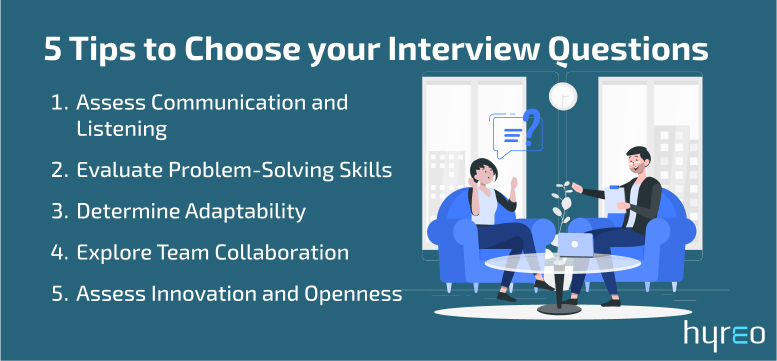Did you know that Ergophobia is the fear of interviews? It is well-known that most candidates get stressed while appearing for interviews. But you will be surprised to know that some interviewers (newbies, proactive and efficient ones) also get apprehensive preparing to interview candidates.
Why is that, you wonder?
As easy as it may seem, asking questions that elicit responses that help you evaluate a candidate’s skills and attitude is quite a tricky task. To understand this better, let us look at a common interview scenario:
The candidate enters, and you greet them. Introductions take place, and you throw out a common age-old and favorite interview question:
“Tell me something about yourself.”
More often than not, the candidate spurts out a pre-rehearsed set of statements – most of which you already know from the resume. What is the competency you have gauged?
You will say – communication skills and confidence. To play the devil’s advocate here, you can check these throughout the interview at any juncture by asking any question. So basically, you have spent about 5 minutes (or more) listening to information that has little scope for evaluation of any competency.
“So, is this question relevant? you may ask.
Not really – this question can be used to break the ice, build rapport or help the candidate feel at ease by acknowledging their response. Interviewers ask several other standard questions that may not be very effective in making hiring decisions.
Of course, swinging the other way to ask cryptic questions that you found on the internet doesn’t help either. Asking a candidate applying for a data-entry role about how many basketballs can fit in a bus may not be fruitful except for stressing them out.
How to choose your interview questions:

- List the competencies and values needed for a role. Break down the competency into tangible actions or behaviors and use them as hints to phrase questions.
- Ask open-ended questions based on the candidate’s experience, designation, and the complexity of the skill needed in the job role.
- Refrain from asking inappropriate or personal questions that may make the candidate uncomfortable.
- Inform the candidates when you transition from a serious line of conversation into questions that are more fun.
- Align the nature of the questions to your organizational culture – fun, serious, creative, cooperative, etc.
- Use simple, conversational questions as icebreakers, like how the candidate traveled to your office, the travel, etc.
- If you are a manager hiring for your team, phrase questions to evaluate whether the candidate will fit in your team or complement the team’s skills and thought processes.
Keeping this in mind, you can ask some different questions that can give you great insights about various aspects of a candidate.
Some central aspects evaluated in an interview are technical skill sets (basic and role-specific, functional skills (to perform basic tasks), interpersonal skills, personality, values, and attitude of the candidate.
Here are some common yet meaningful questions and the competencies they elicit:
| Question | Competency |
| How do you spend your time, outside of work? | Skills, qualities, and values |
| Where do you see yourself in the next 3 or 5 years? | Goal clarity, ambition |
| What has been your biggest professional achievement? | Performance, work ethic, motivation, and professional skills |
| Describe a time when you faced a challenge and overcame it. | Problem-solving, resilience |
| What are your strengths and weaknesses? | Self-confidence, ability to learn |
| How do you handle conflict with others? | Team-work, assertiveness, conflict management |
| How do you manage stress in your job? | Stress management, demotivators |
20 Thought-provoking interview questions to ask
#1 What are the 3 adjectives people may use to describe you? What are you known for? What do you get appreciated for?
Responses to these questions indicate strengths, qualities, or values that stand out in a person. This also shows how confident yet humble a candidate is while expressing themselves. This question is also helpful for anxious candidates and those who find it difficult to talk about their strengths and achievements.
#2 What is the one habit you are trying to change in yourself but haven’t been able to? Why?
This is also an indicator of self-acceptance. Although many individuals may be focused on changing themselves, they take time.
Accepting their shortcomings is only possible for confident people. This question may also show glimpses of a person’s focus, perseverance, and problem-solving (to overcome challenges).
This question is significant for leaders since it will also indicate emotional intelligence.
#3 How often did you proactively ask for feedback from your seniors or peers?
This question indicates initiative, openness to change, and self-confidence to accept criticism.
#4 When have you failed? What did you learn from this experience?
Failure is inevitable, but how a person reacts to it shows a great deal of ownership, resilience, humility, and the ability to learn and grow.
#5 How have you improved as an employee through the years? How have you changed as a leader or manager?
This indicates the ability to be self-aware, set goals, and create personal improvement or self-development plans.
#6 In what scenarios do you lose your patience?
This question is relevant to leaders or managers since patience is an essential virtue in managing people. This also indicates stress thresholds, values (in case of moral conflicts), and possible areas of improvement.
#7 In five minutes, could you explain a complicated concept that you know well in simple words?
Being concise is a commendable skill. If a person can simplify concepts, it indicates the depth of knowledge in a particular area, logical reasoning (to relate it to common concepts), and communication.
#8 If you didn’t need to work for money, which profession would you be in?
This question will give an idea of a candidate’s interests, skills, and aspirations and also indirectly point toward their current needs and motivators.
#9 What keeps are you going at work? / What motivates you to come to work every day?/ How do you motivate yourself to get to work?
The answer to this question shows a candidate’s motivators and a glimpse of their work ethic (when you probe further)
#10 How did you prepare for this interview? / What do you know about our organization?
This shows the interest of the candidate in the opportunity, professionalism, and work values.
#11 Who have you admired in your career and why? / Who helped you get where you are today?
This indicates the qualities and values a candidate has or aspires to have. It could also indicate the candidate’s expectations from their seniors or peers.
#12 What do you value most in your jobs?
This indicates a candidate’s values, needs, and motivators.
#13 How do you handle a situation where two people aren’t working well together?
This question is more apt for managers and leaders. However, this can also indicate if the candidate likes to take the initiative of maintaining team decorum. This question tests a person’s listening skills, empathy, assertiveness, mediation skills, and problem-solving.
#14 Tell me about a time you disagreed with a manager’s instructions or point of view in the workplace. What did you do?
It takes great courage to stand up to an authority figure. This question reflects a person’s values, assertiveness, and work ethic.
#15 Take me through a bad professional relationship you’ve had. Why didn’t it work?
The answers to this question will show a candidate’s perceptions, values, integrity (by not badmouthing the other person), and communication.
#16 If a restaurant served you the wrong dish or a dish not cooked to your satisfaction, what would you do?
This question measures assertiveness in a candidate. Of course, this question can elicit a desired response from the candidate. However, you could ask a follow-up question, ask the candidate to cite an experience, or even role-play a scenario.
#17 What’s one piece of advice or knowledge that’s changed your life and why?
It shows a candidate’s ability to perceive feedback, accept it, and learn from it. You can also ask a related question about whom the candidate takes advice or help from.
#18 What do you rely more upon – hard work or luck? Why?
Although there is no ideal answer to this question, you can gauge the candidate’s perception of work. Often, what comes up in a conversation is also how the person views themselves – as someone helpless or proactive.
#19 If you had to finish multiple tasks by the end of the day, and there was no way that you could finish all of them, what would you do?
This question evaluates time management, prioritization, delegation, and assertiveness. A candidate who can understand the concept of urgency and the importance of tasks and their impact can manage tasks well.
#20 If you were appointed as the company’s CEO, what is the first thing you would change?
This question helps you understand a candidate’s goal clarity, observation, and/or knowledge about the company and their ability to see the bigger picture.
Wrap up
Every question that you pose to your interviewee ideally should have a purpose. If you are interviewing for a role that needs a candidate to handle stress, then you could pose questions that simulate a stressful environment.
If you are evaluating for a customer-centric role, you consider communication and interpersonal skills competencies.
Also, you must be able to fit the elicited responses into an objective scorecard through a rating scale for the desired level of skills and expertise.
Overall, the interviewing process must be enjoyable and objective and help the recruiter make an effective hiring decision.
FAQs on interview questions
What kind of interview questions must not be asked?
Questions regarding a person’s religion, ethnicity, gender, and sexual orientation are off-limits. Effective recruiters also regard questions about a candidate’s relationship status, family planning, or spouse’s job as not professional.
What skills does an interviewer need to have?
Any interviewer needs to have the following skills:
– Interpersonal skills
– Active listening
– Empathy
– Communication
– Observational skills
– Probing
– Emotional intelligence
What does the interviewer need to keep in mind while asking unique or thought-provoking questions?
The interviewer needs to make sure of 3 things while asking ‘different’ questions:
Never ask inappropriate questions that make the candidate uncomfortable
Make the interview conversational and fun
Ensure that the question leads to making a hiring decision
When should an interviewer use brain teasers or riddles?
Brain teasers can be used to evaluate competencies of logical reasoning, problem-solving, quick thinking, creativity, and/or communication under stress. Many interviewers also use them to bring fun into the interview conversation.
– How do you handle a situation where two people aren’t working well together?
– How do you manage stress in your job?
– What are some ways you motivate yourself?
– What was your favorite previous role, and why was it your favorite?
– Imagine yourself in three years. What do you hope will be different about you then compared to now?
– Tell me about a time you took the unexpected initiative. Follow-up: Can you tell me about another?
– What’s something great about your current or previous job? Why?
– What motivates you to work?



